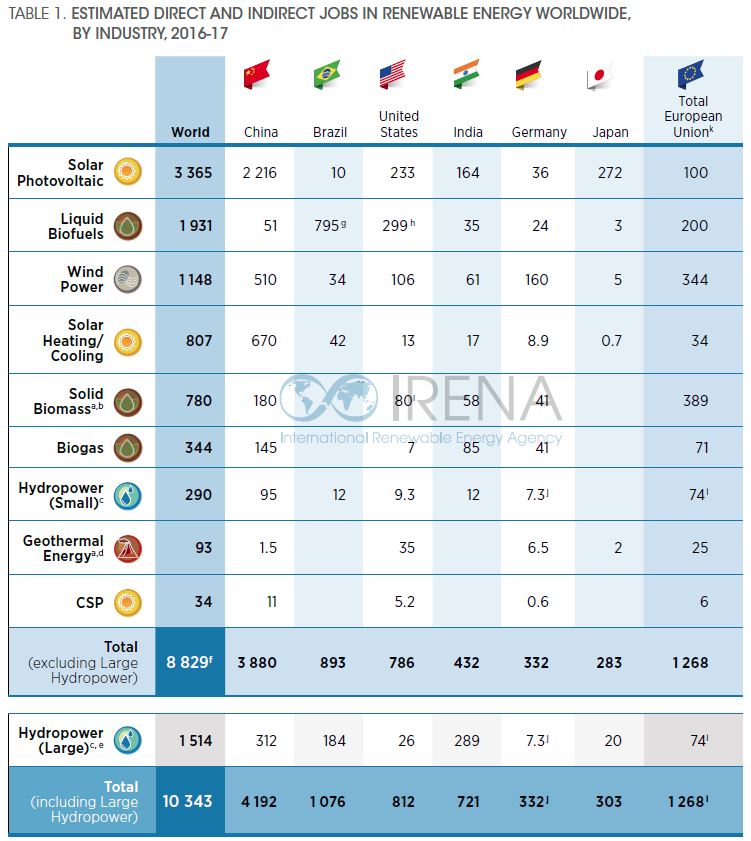
The International Renewable Energy Agency (IRENA) recently announced that the global renewables industry created more than 500,000 new jobs in 2017, a 5.3 percent increase over 2016. The total number of people employed in renewables (including large hydropower) now surpasses 10 million for the first time.
Per IRENA’s Renewable Energy and Jobs Annual Review 2018—the fifth edition in the series—jobs in bioenergy, which includes liquid biofuels, solid biomass and biogas, reached 3.06 million jobs in 2017, up from 2.74 million in 2016.
China, Brazil, the United States, India, Germany and Japan remain the world’s largest renewable energy employers, representing more than 70 percent of related jobs. While a growing number of countries continue to incorporate renewable technologies into their energy mixtures, a bulk of the manufacturing still takes place in relatively few nations. Four-fifths of all renewable energy jobs in 2017 were in Asia.

Other highlights of the report include:
- China alone accounts for 43 percent of all renewable energy jobs. Its share is particularly high in solar heating and cooling (83 percent) and in the solar photovoltaic (PV) sector (66 percent), as well as wind power (44 percent).
- The PV industry was the largest employer (almost 3.4 million jobs, up 9 percent from 2016). Expansion took place in China and India, while the US, Japan and the European Union lost jobs.
- Biofuels employment (close to 2 million jobs) expanded by 12 percent as production of ethanol and biodiesel expanded in most of the major producers. Brazil, the US, the European Union (EU) and Southeast Asian countries were among the largest employers.
- Employment in wind power (1.1 million jobs) and in solar heating and cooling (807,000 jobs) declined as the pace of new capacity additions slowed.
- Large hydropower employed 1.5 million people directly, of whom 63 percent worked in operations and maintenance. Key job markets were China, India and Brazil, followed by the Russian Federation, Pakistan, Indonesia, Iran and Vietnam.
- Employment remains limited in Africa, but the potential for off-grid jobs is high, particularly as energy access improves and domestic supply chain capacities are developed.





